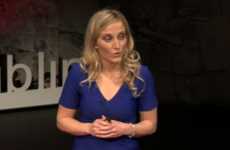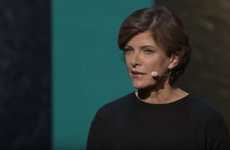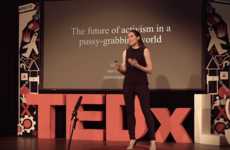
Need Inspiration?
Get inspired by 4,000+ keynote speaker videos & our founder, a top keynote speaker on innovation.
Dr. Kate Marvel Discusses How Clouds Affect The Climate
Mishal Omar — August 3, 2017 — Keynote Trends
References: marvelclimate & youtube
Dr. Kate Marvel is a climate scientist who speaks about how clouds may impact climate change, which as of now is uncertain.
Marvel seeks to answer the question of whether clouds can "buy us more time" to solve climate change, with the short answer being "no." She says that some computer generated climate models predict catastrophic planetary warming, while others predict less severe consequences. This is because of the difficulty of tracking clouds, with some models assuming that they will have a role in blocking out the sun (and therefore help to cool the planet), and others assuming they will contribute to containing heat in the earth's atmosphere.
In Dr. Kate Marvels studies, she has found that high clouds rise up as the climate heats up, working to trap heat into the earth. Scientists have found no clear evidence of the opposite being true, with clouds most likely to contribute to climate change rather than mitigating it. She concludes that since clouds won't be likely to help the earth "break its own fever," it is up to humans to do so.
Marvel seeks to answer the question of whether clouds can "buy us more time" to solve climate change, with the short answer being "no." She says that some computer generated climate models predict catastrophic planetary warming, while others predict less severe consequences. This is because of the difficulty of tracking clouds, with some models assuming that they will have a role in blocking out the sun (and therefore help to cool the planet), and others assuming they will contribute to containing heat in the earth's atmosphere.
In Dr. Kate Marvels studies, she has found that high clouds rise up as the climate heats up, working to trap heat into the earth. Scientists have found no clear evidence of the opposite being true, with clouds most likely to contribute to climate change rather than mitigating it. She concludes that since clouds won't be likely to help the earth "break its own fever," it is up to humans to do so.
6.5
Score
Popularity
Activity
Freshness
















